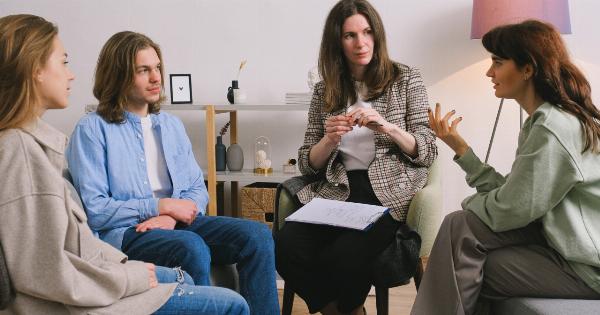When it comes to dementia care, the role of a caregiver can be both rewarding and challenging. Taking care of someone with dementia requires a great deal of patience, understanding, and support.
One way to help caregivers cope with the demands of this role is by joining a dementia caregiver support group. In this article, we will explore the benefits of these support groups and how they can make a difference in the lives of caregivers.
The Importance of Support
Being a dementia caregiver can often feel overwhelming. Caregivers may experience feelings of isolation, frustration, and stress as they try to navigate the challenges that come with caring for someone with dementia.
This is where a caregiver support group can make a significant impact.
What is a Dementia Caregiver Support Group?
A dementia caregiver support group is a safe and supportive environment where caregivers can connect with others who are facing similar challenges.
These groups provide a space for caregivers to share their experiences, emotions, and concerns with individuals who truly understand what they are going through.
Benefits of Joining a Dementia Caregiver Support Group
1. Emotional Support: Caregiver support groups offer emotional support, allowing individuals to express their feelings without judgment.
It can be comforting to know that others are going through similar experiences and can provide understanding and empathy.
2. Information and Resources: Support groups serve as a valuable resource for caregivers, providing information about dementia, available services, and resources that can help them provide better care for their loved ones.
3. Coping Techniques: Caregiver support groups often offer coping techniques and strategies for managing the stresses and challenges of caregiving. Sharing and learning from others can provide valuable insights and new approaches to caregiving.
4. Validation: Caregivers may sometimes doubt their abilities or feel guilty about their emotions. Support groups can validate their experiences and reassure them that they are doing their best under challenging circumstances.
5. Social Connection: Caregiving can be isolating, as the demands of the role often limit social interactions.
Joining a support group can provide an opportunity for caregivers to connect with others who are going through similar experiences, easing their sense of loneliness and providing a sense of community.
How to Find a Dementia Caregiver Support Group
There are several ways to find a dementia caregiver support group:.
1. Local Alzheimer’s Association: The Alzheimer’s Association is a reputable resource for locating support groups in your area. They offer both in-person and virtual options.
2. Online Forums and Communities: Various online forums and communities cater to dementia caregivers. These platforms allow caregivers to connect, share experiences, and provide support digitally.
3. Local Hospitals and Clinics: Reach out to local hospitals or clinics that specialize in dementia care. They may have information on support groups in your community.
4. Social Media: Social media platforms, especially Facebook, often have dedicated groups for dementia caregivers. These groups can be a valuable source of support and information.
Tips for Making the Most of a Dementia Caregiver Support Group
1. Be Open and Honest: To benefit fully from a support group, it’s important to be open and honest about your experiences and emotions. Building trust within the group allows for deeper connections and more meaningful support.
2. Listen and Learn: While sharing your own experiences is essential, listening to others and learning from their insights can broaden your perspective and provide valuable knowledge and advice.
3. Participate Regularly: Consistent participation in a support group helps establish trust and fosters deeper connections with other members. Regular attendance also ensures ongoing support and opportunities for growth.
4. Maintain Confidentiality: What is shared within a support group should stay within the group. Respecting each member’s privacy and maintaining confidentiality creates a safe space for open and honest discussions.
In Conclusion
Caring for someone with dementia is a challenging journey, but caregivers do not have to face it alone. Joining a dementia caregiver support group can provide the much-needed support, understanding, and resources that can make a significant difference.
These groups offer a safe space for caregivers to connect, share experiences, and learn from others. If you are a dementia caregiver, don’t hesitate to explore the options available to you and find a support group that suits your needs.





























